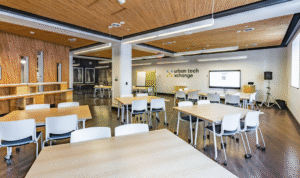
- Kim Kisner
- Community
- 02/28/2023
What the Michigan DNR is Doing and How SE Michigan Businesses Can Help
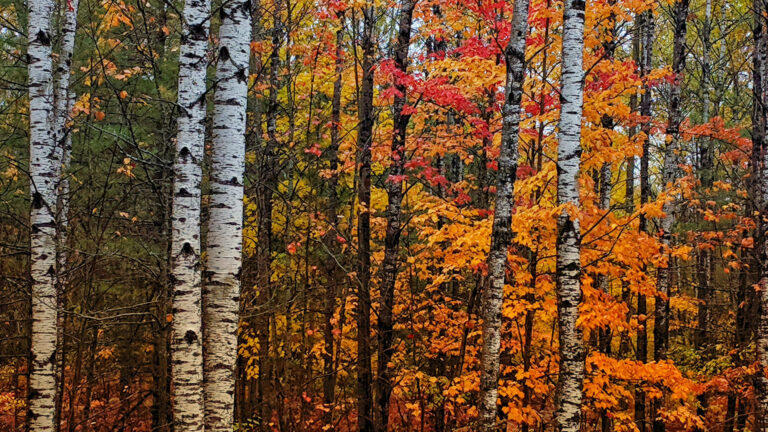
More than half of Michigan is forested, with 20 million acres making up a vital part of the state’s landscape. Millions of acres of Michigan forest land are used to produce timber, a renewable and sustainably managed resource that supports many industries. The forests also provide other values, including wildlife habitat and watershed protection, and also help to sustain biodiversity.
According to the Michigan Department of Natural Resources, the state’s forest products industries provide direct employment to almost 42,000 people, leading to $13.4 billion in economic output. Since 2014, jobs directly provided by forest products industries have increased by 9.7%.
SBN Detroit spoke with DNR state forest planning and operations manager David Price about the impacts of climate change on Michigan forests, the trickle-down effect, and what can and is being done to mitigate risk.
Q: How is climate change impacting forestry in Michigan?
A: Forests have always been associated with Michigan. They’re a huge part of our social and economic fabric. Our forests support direct forestry jobs and also many other secondary industries.
Trees are also important to our general well-being, mental health, and recreational pursuits. They help to regulate the global climate, absorbing a substantial portion of the fossil-fuel carbon emissions we humans produce.
Climate change is driving concerns about forest health and productivity in many ways. Michigan is growing warmer and wetter, and there are projections that by the end of the century, the climate will be more like present Arkansas.
Cold winters control and kill off certain insects that can be harmful to trees. Warmer winters mean these insects can be more persistent and harmful. Combine that with the fact that warmer weather can stress certain tree species and make them more susceptible to drought and less resistant to insects and disease, and we have a big problem.
In Michigan, a good example of this is the hemlock woolly adelgid. We’ve been battling to contain this insect because it’s threatening to kill our hemlock trees along the coast of Lake Michigan. Cold winter weather helps to control the scale of this insect that spreads fungal disease, and warmer winters directly correlate to less winter mortality.
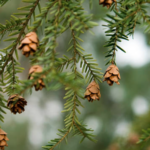
There are operational considerations that climate change is causing as well. If the ground does not freeze, it’s significantly harder to harvest timber without causing extensive damage to the soils, potentially contributing to sediment moving into streams and wetlands.
In Michigan, we have indigenous species such as red and jack pine, aspen, and boreal – spruces and firs – that are at the southern-most extent of their natural range in Michigan and they are not able to move quickly and adjust as the climate changes.
A potential decline in the health and productivity of these tree species due to climate change will harm the values that they provide, including timber production, wildlife habitat, and carbon storage. An excellent example of this is the potential decline of jack pine forests in the northern Lower Peninsula which would cause a loss of habitat for the Kirtland’s warbler, a bird that is endemic to Michigan, recently removed from the endangered species list and proposed to be the new state bird of Michigan.
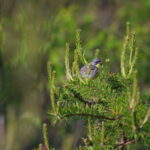
So, as you can see, climate change is affecting our forest health and productivity in several ways.
Q: What are the implications regarding business and the economy in Southeast Michigan?
A: Michigan has a robust $22 billion forest-products industry. Most of the timber is harvested in northern Michigan, but secondary manufacturing occurs throughout the state, including Southeast Michigan.
Many are surprised that Wayne County itself generates over a billion dollars in the forest products industry. The county’s paper products industry supports over 2,800 jobs alone.
Think about sawmills in northern Michigan that then distribute products that are then sold at Menards, Home Depot, etc. This directly contributes to home construction in Southeast Michigan, which is also a huge industry.
The bottom line is, maintaining a healthy and productive forest throughout the state is directly related to the economy in Southeast Michigan and the economy of the entire state.
Q: What can be done to mitigate the risk to our forests, and what is the DNR doing about this?
A: This is a million-dollar question. The happy news is that we can do things to change the outcome and the DNR has many initiatives in place.
One simple thing we can do is plant trees.
There is a lot of vacant land in northern Michigan that used to be forested. These areas are prime for reforestation. Planting trees is a great way to utilize nature for removing carbon from the atmosphere, and it’s underutilized in the state.
The DNR plants over six million trees per year, most replacing forest that’s been harvested.
The DNR has also initiated The Big Wild Forest Carbon Project, the first project in the nation to leverage the carbon storage capacity of trees on state forest lands. This pilot project captures carbon that is sequestered in trees and generated carbon credits. DTE Energy purchased the first decade of carbon offset credits to be used in their commercial natural gas programs.

On a smaller scale, we are working offsetting power usage at our fish hatcheries through solar energy. We are also working with a company called Circle Power to develop two utility-scale solar energy projects on brownfield sites in the Upper and northern Lower Peninsulas.
The DNR also partners with Michigan State University for some important research projects.
First, we are evaluating assisted tree migration, which is a climate change adaptation strategy that involves moving trees or their genetic material from a known location to an area where they are presently well-adapted to an area where they are not currently present or prevalent, but where the trees may be better adapted to future climate under climate change projections. We are experimenting with new species and genetics of species and also identifying seed sources that may be better climate adapted to Michigan in the future to help the forest to be more compositionally diverse and resilient to climate change.
We are also working with MSU to promote mass timber construction.
Mass timber is a new category of wood product that is composed of multiple solid wood boards nailed or glued together into large beams and panels, which provide exceptional strength and stability and also sequester carbon in buildings. It’s a strong, low-carbon alternative to concrete and steel. We will be constructing a new customer service center in Newberry out of mass timber.
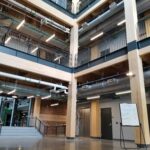
Q: What can businesses in Southeast Michigan do to begin to mitigate risk?
A: Plant trees. People and businesses can take this simple but meaningful action, whether you are located in a city or out in the country.
Where possible, people and businesses can also demand and use renewable and more climate-friendly products derived from wood and other natural materials, rather than unsustainable high-carbon footprint products like plastic, concrete, and steel. Buying wood products that are certified as being sourced from sustainably managed forests is also something that people and businesses can do – look for the trademarks for Sustainable Forestry Initiative (SFI) or Forest Stewardship Council (FSC).
Offsetting home or business energy use through small-scale solar projects can also contribute to achieving Michigan’s goal of carbon neutrality in our electrical energy generation sector.
Every little bit helps. Many small actions can lead to large cumulative impacts.
Be sure to subscribe to our newsletter for regular updates on sustainable business practices in and around Detroit.
Kim Kisner
- All
- Business
- Community
- Education
- Events

Eastern Market Partnership, in collaboration with the City of Detroit’s Office of Sustainability Urban Agriculture Division, has announced $240,000 in grant funding to support Detroit-based farmers and farmer collectives. The grants will advance food access, climate education, sustainable land use, and economic opportunity, with priority given to Black- and Indigenous-led farms, youth-led initiatives, and projects rooted in historically disinvested neighborhoods. The recipients – ranging from cooperatives and community...

Citizen Robotics is a Detroit-based nonprofit that advances the use of robotics and digital manufacturing in residential construction, focusing on improving productivity, sustainability, and long-term affordability. Best known for its early work in 3D-printed housing, it explores how alternative construction methods and new financial models can reduce material waste, lower lifetime operating costs, and enhance the resilience of homes. SBN Detroit interviewed Tom Woodman, founder and president of...
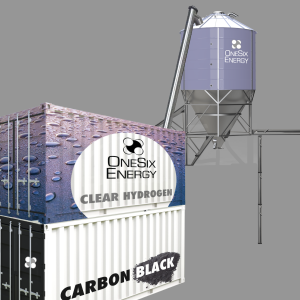
Detroit-based OneSix Energy is a clean-energy technology company focused on advancing a lower-carbon approach to hydrogen production. Headquartered at Newlab in Detroit, the startup is developing a proprietary methane pyrolysis system designed to produce hydrogen without carbon dioxide emissions, while also generating solid carbon as a co-product. SBN Detroit interviewed with cofounder Stefan Sysko about the company’s origins, its approach to hydrogen production, and why Detroit is positioned...






